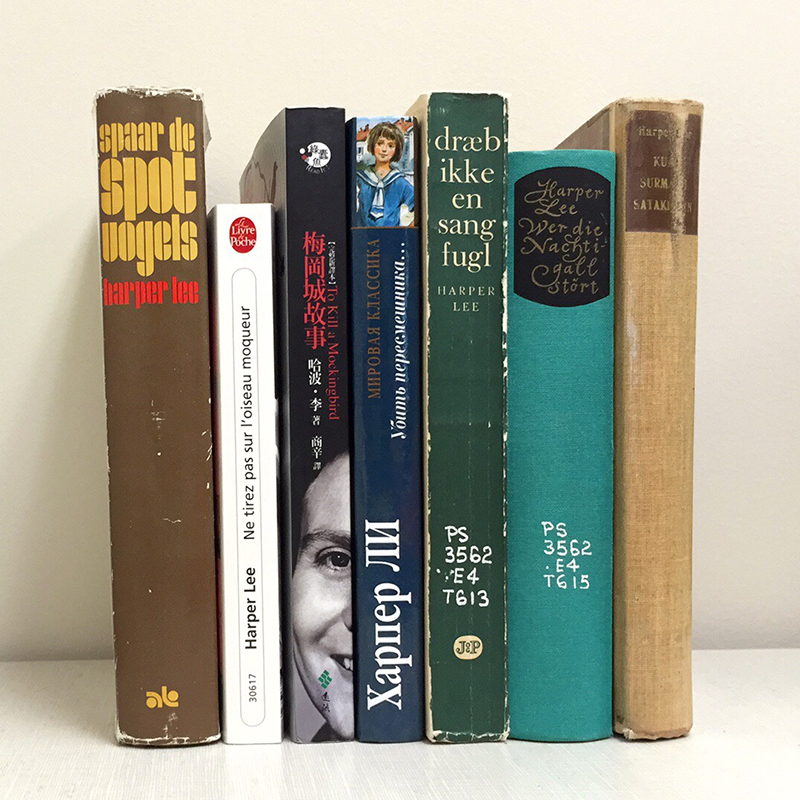In the days since Alabama writer Harper Lee’s death was reported, the news in the U.S. has been filled with reflections and tributes. Not too surprisingly, obituaries were also common in the U.K., Australia, and other English-speaking countries. But there’s a good bet Harper Lee has been remembered even in places where English is rarely or never spoken — because To Kill a Mockingbird was known all over the world.
At Hoole Library, we have copies in seven foreign languages, published as early as 1960 (the same year as the original) and as recently as 2006.

Translations. Left to right: Spaar de spotvogels [Dutch, 1960], Ne tirez pas sur l’oiseau moqueur [French, 2006], Mei gang cheng gu shi [Chinese, 2006], Убить пересмешника [Russian, 2006], Dræb ikke en sangfugl [Danish, 1963], Wer die Nachtigall stört [German, 1962], Kuin surmaisi satakielen [Finnish, 1961]
Since its publication in 1960, To Kill a Mockingbird has been translated into over 40 languages (source). As we mourn Ms. Lee’s passing, we remember the ability of this remarkable book to transcend not just time, but also geography and culture.

